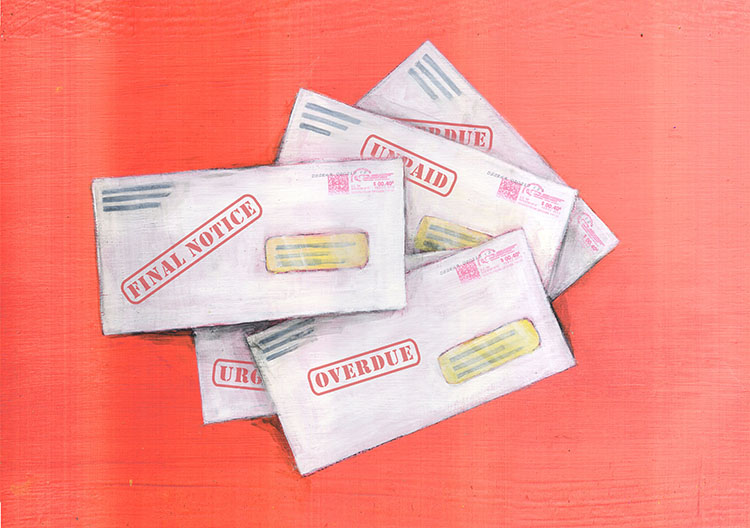
Do unpaid medical bills hurt your credit?
Don’t panic. We’re here with some good news!
Credit bureaus must wait 180 days (from the statement due date) before adding medical debt to your credit report. That gives you a considerable amount of time to work with your insurance carrier to process the claims.
Dealing with a medical bill problem is never fun, but knowledge is truly power. The keys are to:
- Pay the bill on time
- Act quickly to resolve any billing issue
- Negotiate a payment plan before a bill goes to collections
When you get a medical bill
Always follow these steps:
- Don’t wait to open bills from medical providers. Check your bill as soon as possible.
- Compare your medical bill to your “explanation of benefits” (EOB) provided by the insurance carrier. Make sure the amount you owe is the same on both.
- If something doesn’t seem right, call and ask your insurance carrier to discuss how the claim was processed and paid.
- If there’s still a difference of opinion, ask your medical provider’s billing department for the specific billing codes they used (those tell the insurance carrier what services they billed for, and why).
If it looks like your insurance carrier hasn’t paid for everything it should:
- Call to understand why.
- Ask to speak with a supervisor if you can’t reach a resolution with the customer service rep.
- If, after talking with the supervisor, you still think that something isn’t correct, ask about the formal appeal process, if needed.
- Write a formal appeal letter that outlines all the relevant facts of your situation. You may also want to consider asking your medical provider to help write a letter on your behalf.
- If your insurance carrier’s decision is final, try to negotiate your out-of-pocket costs directly with your medical provider.
If a bill ever goes to collections:
- Ask your medical provider to pull the unpaid bill from the collection agency.
- Challenge the unpaid bill in writing (certified mail with return receipt requested) with the collection agency (if needed). You have 30 days from the collection agency’s first contact with you. The collection agency must research the debt to determine if you owe the amount in question. The collection agency cannot ask for payment until the dispute is resolved.
- Get all communications in writing with the collection agency.
If you can’t afford to pay the bill all at once:
Medical providers want to get paid. If you’re willing to pay, then they’ll often work with you.
- Contact your medical provider’s billing department to work out a payment plan (if your bill is accurate).
- Make sure the payment plan is based on your ability to pay. Get all the terms in writing.
- Ask your medical provider about payment assistance programs.
If a medical bill problem does occur, the sooner you take action, the better off you’ll be.
Take heart! There are protections in place to help prevent a late payment, or an uncovered expense, from damaging your credit.
© 2026 Aon plc. All rights reserved.